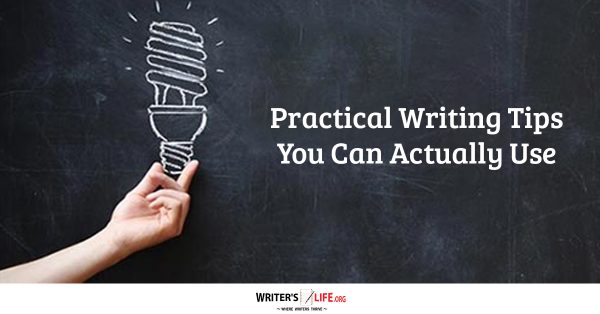- How To Tackle Jealousy In Creative Writing
- Common Submission Mistakes
- How To Stop Your Blog Becoming Boring
- The One Thing Every Successful Writer Has In Common
- How To Make Yourself Aware Of Publishing Scams
- Why Almost ALL Writers Make These Grammar Mistakes At Some Point
- 5 Tips For Authors On How To Deal With Rejection
- Top Mistakes to Avoid When Writing a Novel
- How to Avoid Common New Writer Mistakes
- 10 Mistakes New Fiction Writers Make
Practical Writing Tips You Can Actually Use

There are so many different pieces of advice when it comes to writing. Some you’ll find useful, some you won’t. When it comes to writing tips, every writer is different, and not all pieces of advice will be helpful to them or fit in with what they are trying to say or do.
Sometimes the most practical and straightforward advice is the best. These tips should resonate with all writers, give them food for thought and can apply to any kind of writing. So let's take a look at them:
Say something
Whatever kind of writing you are into, you need to have something to say. Take a step back and think about what your message is, what your point is, what you are trying to get across. Once you are confident of that, you have the essence of your story or article and can build everything else around that.
Use short sentences and simple language
It’s so tempting to show your readers what an enormous brain you have, and to use all the big and smart words you know to demonstrate that. But it’s important to realise that’s not the way to impress your readers. Be inclusive, keep things simple. The most intelligent writing will be able to create an impression without making their readers reach for the dictionary.
Get detailed
Be specific and use detail to build a picture in your reader's mind. The more clever and arresting information you include the more readers will feel they know your characters and the world they live in.
Use the active voice
We know you’ve heard it all before, but using the active voice makes your writing more present and readers have a better connection to the words. So try, where you can, to use the active voice at all times.
Break up your text
Even in fiction writing, massive chunks of texts can make a reader's eyes glaze over. If you are writing a story, break up text into short paragraphs and use dialogue. Articles can be broken down into smaller chunks of text and devices such as bulleted lists, and fact boxes can help too.
Don’t overwrite
Good writing is where a writers ego stays out of it. If you put your reader first and think about what they need to know and what will give them a better, more meaningful understanding of what is going on you’ll find the instances where you overwrite will really stand out. Stop rambling, stop trying to sound smart and merely say what you are trying to say.
Become a brutal editor
Eliminate what you don’t need, become eagle-eyed at spotting mistakes. Read your work through the eyes of a critical reader and remember to keep that ego at bay!
These tips will help make writing sharper, more accessible and more readable. So why not try applying them to your writing projects today?!

Bethany Cadman -author of 'Doctor Vanilla's Sunflowers'


























